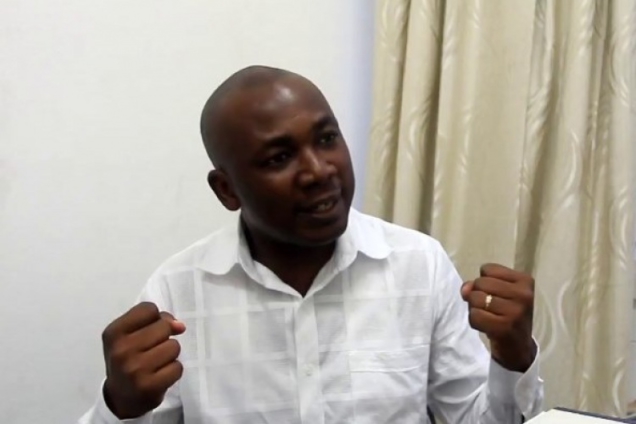
Audio By Carbonatix
Economist and Economics Lecturer at the University of Ghana, Prof. Godfred Bokpin has predicted that this is not the last time the country will be seeking an International Monetary Fund (IMF) bailout.
He said this is due to the failure of successive governments to adopt prudent measures to stabilize the economy.
“This is not the last time we will be going to the IMF. We have failed as a country to successfully do the needful- to say these are the necessary fiscal reforms we need to pride ourselves as a nation that won independence in 1957,” he said on the Super Morning Show, on July 6, 2022.
Ghana has sought the assistance of the Bretton Woods institution 16 times already.
Contributing to discussions on the government’s decision to seek an IMF bailout, Prof. Bokpin recalled that in 2019 when the country was exiting the 16th IMF programme, government promised to roll out some reforms to restore the ailing economy.
"This won't be the last time we will go to the IMF, we have failed as a country successfully to the needful when we were in charge"
— Joy 99.7 FM (@Joy997FM) July 6, 2022
- Prof. Godfred Bokpin on Ghana and the IMF. #JoySMS pic.twitter.com/mltwGeXKva
However, failure to implement those measures has resulted in the current derailed economy.
“When we were exiting the 16th programme in 2019, government promised the IMF they were going to embark upon certain reforms – fiscal reforms, productivity-enhancing reforms and they satisfied the IMF that these were going to be done. The IMF agreed with them in principle and we exited successfully."
He noted that although government pledged to implement an Exemption Bill as part of the measures, this did not happen.
“The other thing they said was a Fiscal Responsibility Act. Inbuilt in that they talked about a Fiscal Council but then the Exemption Bill went to Parliament and government wasn’t really committed to passing the Exemption Bill. They only took it to Parliament to fulfil righteousness. The Bill was never passed,” Prof Bokpin stressed.
He also mentioned that although government promised to do proper supervision of the State-Owned Enterprises (SOEs) to reduce losses, this was not fulfilled.
“If you put all these together, you realise that how we are running our democracy is very expensive – that when it comes to the cost of running the government architecture, it leaves nothing for development activity.
“And if we continue like this, you’ll have to be unique to expect a different outcome and I’m sorry if we don’t take advantage of the next programme to make the necessary reforms, we will be there (IMF) again,” he added.
Latest Stories
-
Kim Jong Un chooses teen daughter as heir, says Seoul
16 minutes -
Morocco to spend $330m on flood relief plan
22 minutes -
Ghana’s gold output hits record 6 million ounces in 2025, industry group says
24 minutes -
‘I’m a lover boy, not womaniser’ – 2Baba on fatherhood, marriage to Natasha
37 minutes -
Tems becomes first African female artist to have 7 entries on Billboard Hot 100
47 minutes -
Police arrest three for the alleged possession of firearm without license
57 minutes -
Suspected robber shot dead by police while fleeing with officer’s vehicle
1 hour -
Head porter charged over mobile phone theft
1 hour -
Tuchel extended England stay for ‘amazing players’
1 hour -
Atletico Madrid put four past Barcelona in Copa del Rey semi-final
2 hours -
Tottenham are ‘not a big club’ – Postecoglou
2 hours -
Nottingham Forest close in on Pereira appointment
2 hours -
England to face Spain and Croatia in Nations League
2 hours -
Sterling joins Feyenoord until end of season
2 hours -
A Tax for Galamsey: Akwasi Acquah slams government for failing to punish complicit officials
2 hours

